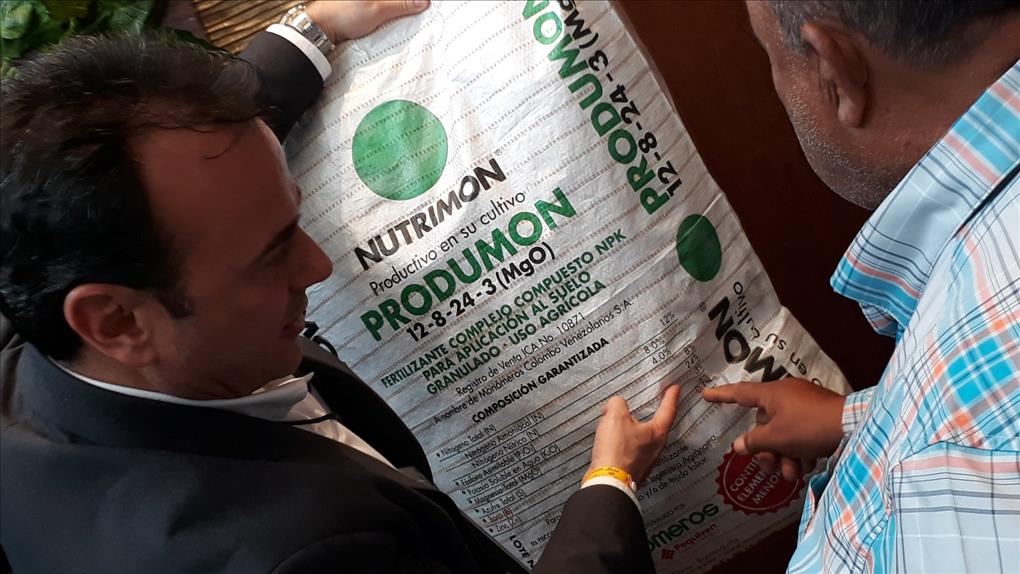
Petro Government In Colombia Poised To Return Key 'Stolen' Asset To Venezuela
Mexico City, Mexico, July 11, 2022 (venezuelanalysis.com ) – Troubled agrochemical company Monómeros, a subsidiary of Venezuela's state-owned Pequiven, could return to Venezuelan control, Colombian President-elect Gustavo Petro told local radio Tuesday.
The Colombia-based agrochemical producer is considered Venezuela's second most important foreign-held asset. It came under the control of Venezuela's hardline opposition in May 2019 alongside a number of other foreign assets following the recognition of Juan Guaidó as“interim president” by Washington and its allies as part of efforts to oust the Nicolás Maduro government.
Since being handed over to the opposition, Monómeros has been plagued by scandals and corruption allegations, which has severely impacted its productivity and has generated serious problems for Colombia's rural producers.
Colombian Senator Luis Fernando Velasco Chaves, a member of Petro's transition team managing the Presidential Administrative Office file, reiterated concerns about the management of the firm following a meeting Tuesday with officials from the government of outgoing president President Ivan Duque.
'I am very concerned that Monómeros is still in the hands of Guaidó, Monómeros in the hands of Guaidó was a disaster, it disappeared,' said Velasco.
The senator also ridiculed Guaidó's management of Monómeros, saying the incoming government could not negotiate with“ghosts that do not exist”.
The agrochemical enterprise, which has two main plants, played a major role in Colombia's food chain, previously supplying nearly half of the fertilizers and 70 percent of the agrochemicals used by coffee, potato and palm oil production, according to local sources.
'Please look at what is happening to us, ask our peasants, ask our farmers, we are not producing and we are paying three times the [previous] cost of supplies,” said Velasco.
Mismanagement and infighting by the Venezuelan opposition eventually led Colombia's Corporation Superintendency to assume control of Monómeros. Colombian law allows the corporate watchdog to employ such a process when an enterprise is in a critical“judicial, accounting, economic or administrative” situation.
The Maduro government called the superintendency's takeover a “flagrant theft” of Venezuela's assets and demanded they be returned to its rightful owner, the state-owned petrochemical company Pequiven. Maduro has said that Venezuela was engaged in“permanent diplomatic, political and legal activity” to recover the country's foreign assets and the government has made the return of seized foreign assets a condition of a return to talks with the opposition.
The agrochemical producer did not fare much better under control by Colombian officials, with Petro claiming the company was driven into the ground, leading to a sharp increase in costs for Colombia's agricultural sector.
“The company ended up practically closing its operations and lost the market it had in Colombia,” said the president-elect in a recent interview.
Monómeros faced yet another scandal after officials from the US Embassy to Venezuela revealed to Guaidó insider Enrique Sánchez Falcón that the company's board had hired a lobbyist with ties to former US Ambassador to Venezuela Otto Reich without the knowledge or authorization of Guaidó's team.
Sánchez Falcón told the outlet Efecto Cocuyo that the lobbyist was allegedly working to renew Monómeros' sanctions waiver with the US Office of Foreign Assets Control (OFAC) but that the effort was“unnecessary” since the license was likely forthcoming anyway. Guaidó subsequently announced an investigation into the irregular hire of the lobbyist. The OFAC license was eventually renewed in late June.
The current leadership of the firm has apparently failed to even update officials from Guaidó's team about the status of the Monómeros. Guaidó ally Yon Goicoechea said he believes the secrecy is tied to a hostile takeover effort. The US-backed“interim president” has pledged to overhaul the management of the corporation but the efforts have led to corruption accusations and further infighting amidst the opposition camp.
A press spokesperson from Guaidó's office did not respond to a request for comment on the possible return of Monómeros to Venezuelan state management.
Outgoing Colombian President Iván Duque has steadfastly refused to return control of Monómeros to Venezuela, given that he does not recognize Maduro as president.
Duque recently said that he would also decline to extend an invitation to Maduro for Petro's inauguration. The president-elect has said invitations are the purview of the outgoing government but said Maduro's attendance would be“prudent”.
Petro, who has committed to reestablishing diplomatic and economic ties between Colombia and Venezuela, takes office on August 9.
Edited by Ricardo Vaz in Mérida.
| Subscribe to our newsletter to get news and analysis in your inbox
|
| Venezuelanalysis is 100% sustained by readers. Consider supporting our independent, on-the-ground work |
MENAFN11072022000214011058ID1104514806

Legal Disclaimer:
MENAFN provides the
information “as is” without warranty of any kind. We do not accept
any responsibility or liability for the accuracy, content, images,
videos, licenses, completeness, legality, or reliability of the information
contained in this article. If you have any complaints or copyright
issues related to this article, kindly contact the provider above.


















Comments
No comment